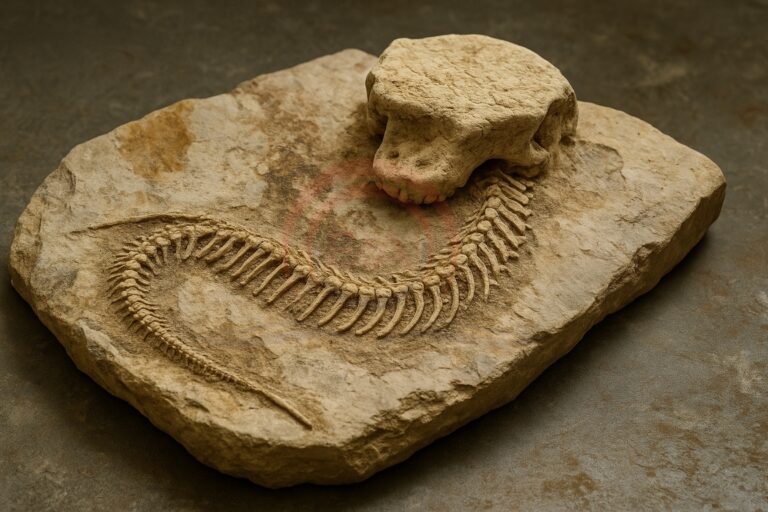Recently, palaeontologists in Gujarat discovered the fossil of a giant snake Vasuki indicus (about 47 million years old). Experts have raised concerns that in the absence of a national fossil repository or strong legal safeguards, India’s fossils face theft, vandalism, and illegal sale in international markets.
Significance of Fossils in India
- India’s fossil record includes early plant life, dinosaurs, whale ancestors, and ancient human remains.
- This rich record is due to the subcontinent’s geological history — separation from Gondwanaland and later collision with Asia.
- Fossils provide key evidence for studying evolution of life forms, including horses, whales, and reptiles.

Current Challenges
- Lack of National Repository: Unlike many countries, India does not have a secure and catalogued fossil bank.
- No Specific Law: There are no clear laws to regulate fossil collection, sale, or protection.
- Theft and Vandalism: Many fossils have been stolen from museums and excavation sites.
- Private Hoarding: Several collections remain in private hands, often unsorted and unstudied.
- Commercialisation: Fossils are openly sold online and sometimes fetch millions at international auctions.
Global Context
- Fossils worldwide are increasingly treated as luxury collectibles.
- In 2024, a near-complete stegosaurus fossil was sold for $44.6 million at Sotheby’s auction house in New York.
- Many Tyrannosaurus rex specimens are now in private collections rather than public institutions.
- Even celebrities and wealthy collectors treat fossils as trophies, worsening the scientific loss.
Case Studies from India
- Vasuki indicus Fossil (2024): Found in Panandhro lignite mines, Gujarat, but stored in IIT-Roorkee without long-term security.
- Indohyus Fossil: Once in a private collection, later identified as an ancestor of whales.
- Dinosaur Eggs in Madhya Pradesh: Despite being shifted to a museum, many were stolen in 2013.
- Amateur Custodians: Local enthusiasts like teachers often safeguard fossils, but without institutional support.
Risks for India’s Heritage
- Fossils can easily vanish through smuggling, mismanagement, or neglect.
- Once lost, they cannot be replaced — leading to a permanent gap in earth’s history.
- Heritage theft has already been seen with Indian cultural relics, and fossils may face the same fate.
Way Forward
- Establish a National Fossil Repository with scientific cataloguing.
- Frame legal safeguards against sale, export, or destruction of fossils.
- Encourage community participation while ensuring fossils remain accessible for research and public education.
- Promote international cooperation to recover smuggled fossils.
Conclusion:
India’s fossil heritage is a scientific and cultural treasure. Without urgent action through laws, repositories, and awareness, priceless evidence of earth’s evolutionary past could end up as mere collector’s items in foreign markets.





